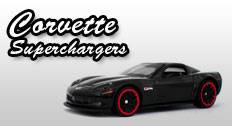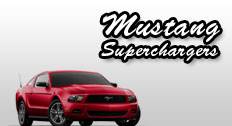Welcome Guest
My Account
Need Help?
Edelbrock Supercharger
636-352-2045
Mon-Fri 8am-7pm (EST)
FAQ's
- What can a supercharger kit do for my vehicle?
- How will a supercharger kit increase my engine's performance?
- How much horsepower will a supercharger add to my engine?
- How will a supercharger affect my fuel mileage?
- Why do I need a complete supercharger kit when I can just get a cheaper tuner kit?
Q: What can a supercharger kit do for my vehicle?
The first thing you need to know is that combustion requires three things:
- Fuel
- Oxygen
- Ignition Source
Naturally aspirated engines depend on atmospheric pressure and the action of the piston to draw air into the combustion chamber. This air then mixes with the gas and is then ignited by the spark plug. This process does NOT maximize engine potential.
Enter Supercharging
Superchargers are basically air pumps designed to make horsepower by pushing more air into the combustion chamber than a naturally aspirated engine could pull on its own. When fuel has more oxygen to react with, is more efficiently consumed, and as a result produces a more powerful explosion to push the pistons down with more force. It is because of this that a supercharger can add substantial torque and horsepower to your vehicle. At the low RPM’s, torque gains can be dramatic. Often rear wheel torque can rise to the range of 400 ft-lbs at slightly over 2000 RPM. Since most driving is done between idle and 4500 RPM, superchargers are most often optimized to operate most efficiently in this band where torque is most felt.
What this means for you.
For a truck that may weigh in excess of 5000 lbs, the torque and horsepower gained by supercharging will dramatically reduce engine strain required to get the truck moving as compared to a normally aspirated engine. The result is greater towing capacity, the ability to pull heavy loads up a long grade with far greater ease and increased fuel economy.
Q: How will a supercharger kit increase my engine's performance?
Superchargers create performance by increasing the amount of air in the air/fuel ratio of an engine. This increased density is achieved by forcing a greater amount of air (beyond the amount of air than atmospheric pressure and piston draw forces would be capable of) at the lowest temperatures possible. CFM is a volumetric measure of air that an engine is flowing and MAF (mass air flow) factors in the temperature of the air charge. Since air at cooler temperatures has a higher density, the amount of oxygen available for combustion is greater and therefore this charge produces more power. So in more technical terms, supercharging increases both the volumetric efficiency of the engine and the mass air flow through the engine to produce gains in both horsepower and torque.
Q: How much horsepower will a supercharger add to my engine?
Some superchargers list estimated gains on specific setups or kits. These dyno tested horsepower and torque results are an excellent baseline, but superchargers actually add horsepower as a percentage gain. On an engine with a compression ratio of around 9:1 running pump gas, if a supercharger gives your engine 14.7 psi of boost (1 additional atmosphere) the supercharger will basically double its output potential. Adjustments must then be made to this number for thermal and mechanical energy transfer. If an efficient supercharger is generating 7.5 psi (approx. 1/2 an atmosphere), you will see about 35-40% gain in horsepower and torque as compared to your non-supercharged maximum horsepower rpm. If detonation forces you to use an ignition/timing retard system, you will see less of a gain. Backing off several degrees of timing will greatly reduce an engine's power output. At higher boost levels, the heat generated by compressing air will diminishing the power return as the boost is increased. This may be reduced with the utilization of an intercooler system or upgrading from pump gas to racing fuel(increased octane rating). Adding an intercooler system allows you to run higher boost levels while maintaining reliability, 100% increases can generally be achieved at around 17 psi on an engine with 9:1 compression running pump gas. The gains in horsepower and torque delivered by each supercharger kit varies by application and can usually be altered or modified to best suit your performance needs and driving style.
Q: How will a supercharger affect my fuel mileage?
Answer 4: With the addition of a supercharger kit, your average miles per gallon (MPG) will change. That change can be an increase or decrease in fuel economy depending on your driving habits and application. Often an increase in fuel economy is seen under standard driving conditions with the addition of a supercharger. A 2 to 3mpg increase is not unusual under normal daily driving conditions. This gain can be attributed to the supercharger reducing the pumping loss of the engine. This loss can be better described as the vacuum force produced by the engine that is required to actually pull the air/fuel mixture into the cylinder. The supercharger helps this process by equalizing cylinder pressure and effectively helping to ‘push’ the piston to the bottom of the intake stroke, increasing engine efficiency. One reason owners often say there is a loss in fuel economy when adding a supercharger kit to their car is that most owners find it difficult to keep their foot off the mat! Under supercharged racing conditions, fuel economy decreases due to the engine’s increased ability to produce horsepower and torque. This increase is generated by consuming a greater quantity of fuel and air. Simply stated if you drive hard or race often your average miles per gallon will decrease. This is similar to the fuel economy loss seen in a naturally aspirated engine under extreme driving conditions.
Q: Why do I need a complete supercharger kit when I can just get a cheaper tuner kit?
Tuner kits are designed for qualified tuners or race shops that do not require the fuel management systems most often included in complete or standard supercharger kits. Among the items most often excluded from these kits are fuel pumps, fuel injectors, FMU, air-inlet assemblies and ECM programmers or timing controllers. Complete systems usually include all components required for a bolt-on installation by an experienced do-it-yourselfer. A good rule is if you are not sure what the difference is between tuner kits and complete supercharger systems, you will need the complete kit. If you are a racer who already has an upgraded fuel system or plans to do their own engine tuning and timing with the addition of a fuel delivery system then a tuning kit may be the ticket to horsepower you've been looking for.
Shop by Vehicle
Browse Superstore
Have a Question?
- Email UsGet Answers From Pros
- 636-352-2045 Mon - Fri 8am - 5pm PST




